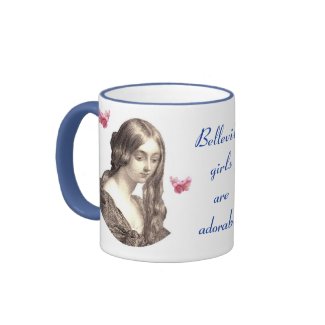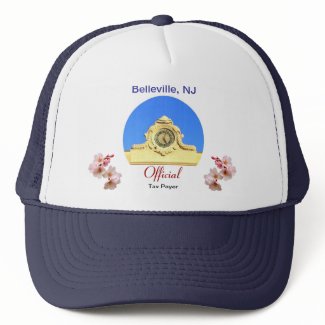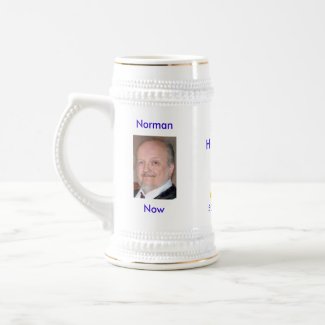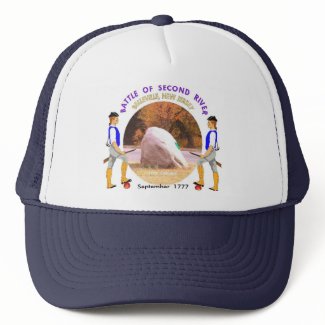The 1839 Affair
A Belleville Dollar, 1839.
There is probably no period in our town's history more misunderstood than 1839 and what transpired in that year. I recall how, in 1989, the entire town erupted into great and wondrous excitations to celebrate our 150th anniversary. But, I wondered, the 150th Anniversary of what ? Our village was settled circa 1674. In 1682, when William Penn had purchased the proprietorship of East Jersey and sent his cousin and agent, William Markem to survey the realm, Markem reported that our village was "a thriving community with a considerable population". In 1697 Second River was sufficiently robust to merit the founding of a congregation of the Reformed Dutch Church headed by the renowned Rev. Guilliam Bertholf; this having been done directly with our independent community; not through another governing jurisdiction.
Our village was acknowledged as a separate entity by no one less than King George II in 1746 when the Episcopal Church was formed. Our village, notoriously active throughout the Revolutionary War during the 1770's, appears on George Washington's battle maps as a separate jurisdiction. We had changed our name from Village of Second River to Belleville in 1797. What then, in heavens name, were we celebrating here in 1989? Well, it turns out that we were celebrating a divorce. It was the termination of an experimental, short-lived, very unhappy, 3-way marriage. Now, that may need some explaining.
A complete understanding of what occurred can only be reached after a careful reading of The Township Act of 1798. It was during the decade that followed the end of the Revolutionary War. The recently approved Federal Constitution, in which existed a specific and itemized list of powers granted to the Federal government, left all governing powers not on that list to the several States. During this transitional period, each of the former colonies, now States, were meeting in their respective Capitals to decide what the mechanisms of government would be, each within its own borders. New Jersey chose a classic Greek model.
It was decided in Trenton that, at the municipal level, New Jersey would not be governed by representative government, but rather by direct democracy. Each and every land-owning, tax-paying, voting citizen would be required to appear at an annual town meeting at which the affairs of government would be openly debated among all citizens present and voted upon. To simplify Trenton's task of overseeing the process, the State would be divided into 103 townships having limited authority. This is where the trouble started. There were far more than 103 towns and villages in New Jersey. It meant that many independent communities were to be married together for township purposes. The powers of the township, as with the Federal Constitution, were strictly limited to an itemized list. All other activities would remain with the local community. The Township Act of 1798 gave the townships these five powers :
1 Manage and improve common lands. (grazing)
2 Establish and maintain pounds (cows)
3 Make provisions for the destruction of noxious wild animals and birds
4 Maintain and support the poor
5 Build and maintain roads
The townships were authorized to collect taxes, but only for the purpose of carrying out these five responsibilities. It was all very idealistic, this ancient Greek model of direct democracy, very noble and absolutely infuriating !
In Trenton it was decided which of the many communities needed to be married-off so that the total could be reduced to 103. In our case, the towns of Cranetown (Montclair), Belleville and Bloomfield were made party to a shotgun wedding after which we would be required to act in concert with regard to the five powers of township. It was at this moment in time when something happened that has caused endless confusion in our history. Trenton chose to name the new township Bloomfield Township. At this point we must pause and reflect on what has just occurred. What must be understood is this; Belleville never fell under the municipal jurisdiction of the municipality of Bloomfield. Rather, all the voters of all three towns were to gather once a year to discuss, in harmony, and vote upon how the 5 responsibilities of a township would be addressed, ... and paid for. (Can you imagine what that might look like if we were still required to do that today?) There is, after all, a remarkable difference between being annexed by another jurisdiction and being called upon to share the governing duties. The voters of Montclair, Belleville and Bloomfield had been called upon to share the responsibility.
On the surface, it didn't seem so difficult. There were only those five items to address. Public lands, at that time, meant grazing lands. As the region was becoming more and more industrialized, cows were declining in importance. Pounds also had to do with cows. It seems that cows are not respecters of property rights. Many a cow would, with malice aforethought and criminal intent, eat grass that was not meant for them to eat. If I caught your cow eating my grass, I would capture it and take it to the pound. In order for you to recover your cow, you would have to pay a fine related to the weight of your cow (called "poundage", hence the name "pound"). A share of the fine would come to me to reimburse me for lost grass. In jurisdictions where cows were a significant part of the economy, the pound-keeper was a very important man. Keeping the area free of vermin was not controversial. Paying for the poor was a sticking point in our area. Belleville was a former Dutch colony and was still very Dutch in character. Taking care of the poor was viewed very seriously here. It was our policy towards the poor which had helped us in the 1740's fend-off an attempt by Newark to annex us. Others did not share our enthusiasm or sense of urgency on the matter of helping the poor.
Item 5 on the list of powers, the building and maintaining of roads, was the issue which generated the most debate and outright hostility. It should be remembered that Belleville, during this time, included within its jurisdiction the communities of Nutley, Woodside, Mongomery, Soho and the rapidly developing area around Sunfish Pond. Belleville, the most industrially advanced community in the new township, the community best able to pay taxes, would have to contribute to the building of roads beyond its own growing need and include contributions to those other parts of the township. Roads were the lifelines of commerce by which communities sustained themselves and grew. Deciding on how money would be collected and distributed among the communities for roads was a hotly argued subject. It became intolerable. Not just here, but throughout the State. Lines were forming at the doors of the Statehouse. Town after town sent representatives to Trenton to demand annulments and divorce decrees from their townships. Trenton's idealistic vision of mutual self-government was not being well received at the local level.
The wheels of the legislature turn slowly. Each year several communities would receive their divorce decrees. In 1839 our turn came. A bill to grant us separation, sponsored by Abraham Spear, came forward for consideration. There is at least one vivid account of a wild and dangerous midnight ride through the darkness of central Jersey by Abraham Spear, who, upon learning that our decree was being decided and wanting to exercise his considerable influence during the vote, raced through the night to be in attendance. It was done. On April 8, 1839 our experimental marriage, begun in 1812 as a result of the Township Act of 1798, was dissolved. It was over.
So, there we were in 1989, 150 years later, jubilantly celebrating our divorce. Our brief affair, a flirtatious adventure attempting the mutual, cooperative governing of even a few designated issues, had not worked.
<=== *** ==>
All content of this site is Copyright 2009 Norman Price and may not be reproduced or redistributed in any manner without written consent.
<=== *** ==>
St. David's Day is March 1st !
Visit the Welsh Gift Shop for an assortment of St. David's Day greeting cards.
































